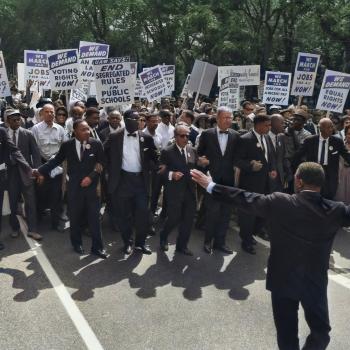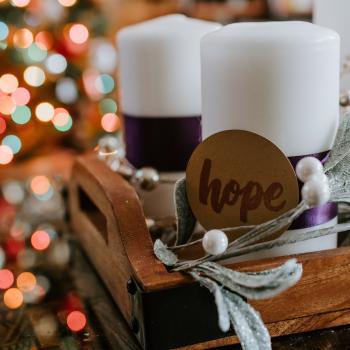Last year, Ava came home from school on the last day before Thanksgiving break with all her work from the past week. As I looked through it, I saw that she was learning about “The First Thanksgiving.” It was the traditional story of the Pilgrims and Indians sharing a meal together, the same story that I grew up with and that most of us have been taught from an early age. To many people, that may seem innocent enough, but as I’ve been intentionally listening to diverse perspectives over the past few years, I’ve discovered that this story is actually problematic in many ways. It is full of holes and perpetuates a myth of friendship and goodwill between the Native Americans and those who came to take their land.

It’s no secret that our nation’s history is full of tragic realities – genocide, slavery, lynching, wars, internment camps, and discrimination (to name a few). Yet, so often we choose to either ignore those parts, justify them, or downplay the long-lasting effects of such tragedies. For those of us in the majority culture, it may not seem like such a big deal to just gloss over the grisly details, but the reality is that the way we teach history shapes the way that we perceive the world around us and how we interact with others. A false (or incomplete) narrative can perpetuate the injustice, often without us even realizing it.
When I saw Ava’s schoolwork, I had a choice to make. I could tell myself that it wasn’t that big of a deal and stay silent so I wouldn’t rock the boat. Or I could bring up my concerns with the school. Honestly, the first option would have been much easier and more comfortable for me, and it’s a path that I’ve chosen before. But I knew that it doesn’t do much good to learn and speak about issues of justice if I’m not willing to confront those issues when I encounter them. So I set up a meeting to talk through my concerns with the principal.
It was really important to me to go into this meeting as a peacemaker. My intention was not to be argumentative or to chastise but to share what I’ve learned and to think through together how can we can handle this subject in a more accurate and culturally sensitive way. I did some research, prepared my talking points, prayed a lot, and invited others to pray with me, too. Though I had a lot of anxiety going into this meeting alone, I felt peace knowing that I had a community of people supporting me in prayer.
Thankfully, the meeting went better than I expected. The principal was on the same page as me, and we had a great conversation about the complexities of this part of our nation’s history. We looked over state curriculum standards and brainstormed together what it could look like to teach Thanksgiving differently. She committed to talk to the teachers about all we had discussed, and I offered to send her some resources that could be helpful for the teachers in planning out their lessons on the subject.
I walked out of the meeting with a huge sense of relief. I was grateful to have the opportunity to partner with the school to bring some positive change. And I knew that this was about so much more than this one meeting in this one school. This was part of a conversation happening all over the country, and I got to do my part in my small corner of the world. I got to speak up in order to uphold the dignity of a group of people that have all too often been demeaned or ignored. That was worth so much more than my time and comfort.
If you’re wondering what’s so wrong with the story of “The First Thanksgiving,” or if you’re interested in some resources to explore the issue more, check out the info below that I prepared for my meeting with the principal…
A few issues with the story of “The First Thanksgiving”:
- The story of the “Pilgrims & Indians” is not historically accurate, and it minimizes the harm that was done to native people as settlers arrived from Europe. It fails to mention the disease that killed off many natives, the genocide, the removal of tribes from their land, and the attempt to erase their culture.
- The characterization of Native Americans often fails to recognize the diverse tribes that each have their own distinct culture, language, dress, and traditions.
- When we talk about Native Americans solely in past terms, it erases them as people who are still living in our country today, whether on reservations or in our communities.
Some suggestions for how to teach about Thanksgiving and Native Americans in a more culturally sensitive way:
- Teach a more accurate, well-rounded perspective of the relationship between settlers and Native Americans.
- Focus on Native American culture of specific tribes from the past and present. (November is Native American Heritage Month so it’s a great time to incorporate that)
- Learn about the tribes that live and/or lived in your region.
- Don’t use stereotypical images of Native Americans. (e.g. feather headdresses and tipis)
- Use the term Native Americans or indigenous peoples instead of Indians.
Children’s book suggestions:
- Giving Thanks: A Native American Good Morning Message by Chief Jake Swamp
- Bowwow Powwow by Brenda J. Child
- The Very First Americans by Cara Ashrose
- We Are Grateful: Otsaliheliga by Traci Sorell
- 1621: A New Look at Thanksgiving by Catherine O’Neill Grace
Teaching resources:
- Do American Indians Celebrate Thanksgiving? – blog post about the history of Thanksgiving, the effects of the traditional narrative, and ideas for how to celebrate the day
- Thanksgiving Interactive: You Are the Historian – online interactive tool to learn about the 1621 thanksgiving feast, Wampanoag traditions, and pilgrim life
- Are You Teaching the Real Story of the “First Thanksgiving?” – article about the issues with how Thanksgiving is traditionally taught and ideas for the classroom
- Deconstructing the Myths of the “The First Thanksgiving” – blog post that addresses 11 common myths
- American Indian Perspectives on Thanksgiving – reading material and ideas for the classroom
Further learning for adults:
Check out these Native American author/speakers that I am learning from in my own journey…
Disclaimer: This post contains affiliate links. If you purchase a product from the Amazon links provided, I will receive a small commission at no extra expense to you.













